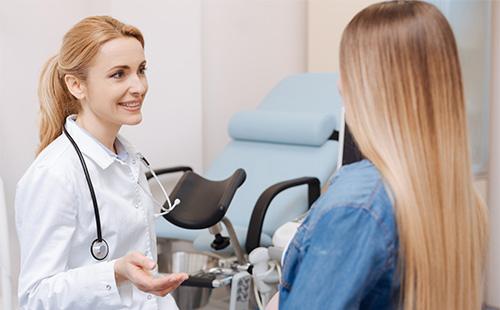The content of the article
The vagina is a unique organ of the female reproductive system, one of the few capable of self-purification. This is achieved due to the presence of special microorganisms - lactobacilli (Doderlein sticks), which colonize the vagina and prevent the proliferation of foreign microorganisms. A favorable pH environment of about 4.5 is maintained in the vagina. The epithelium is updated monthly in accordance with the menstrual cycle.
However, these processes are violated if the vagina is populated by opportunistic microflora. Bacteria begin to multiply intensely, displace beneficial lactobacilli, and a condition arises that modern doctors call bacterial vaginosis. Otherwise, vaginal dysbiosis.
Bacterial vaginosis (dysbiosis, vaginal dysbiosis) is a non-inflammatory disease. A change in microflora violates the natural defense mechanisms and facilitates the colonization of the vagina by pathogenic bacteria and viruses. If the flora is not normalized in time, then the next step will be the inflammatory process. In pregnant women, dysbiosis increases the likelihood of premature birth and contributes to postpartum hemorrhage. Therefore, vaginal dysbiosis can be dangerous.
What upsets the balance
Violation of the ratio of vaginal microflora can not be called a rare disease in gynecology. According to various sources, every third woman at least once in her life experienced similar symptoms. Normally, various bacteria live in the vagina, but lactoflora takes the first place. If the balance is upset, then the following types of microbes begin to multiply and dominate:
- Gardnerella vaginalis;
- Mycoplasma hominis;
- Bacteroides spp .;
- Prevotella spp .;
- Peptostreptococcus spp .;
- Mobiluncus spp .;
- Fusobacterium spp.
Pathology development factors
It used to be thought that bacteriosis is sexually transmitted. When it turned out that the provoking bacteria live in the body of healthy women, the approach changed. Currently, the following causes of vaginal dysbiosis are distinguished.
- Reception of antibacterial drugs. Antibiotics contribute to the death of both pathological and normal microflora. If lactobacilli do not have time to restore the amount, then conditional pathogens will multiply instead.
- Hormonal disorders. Doderlein sticks are sensitive to the action of female sex hormones. Diseases leading to a decrease in estrogen negatively affect the vaginal microbiocenosis. For the same reason, it is necessary to take a responsible attitude to the choice of hormonal contraceptives.
- Frequent change of sexual partners. Each person is a carrier of a unique microflora, with unprotected sexual contact, alien bacteria are able to colonize a suitable territory and displace the former "residents".
- Decreased immunity. Elimination of constraints leads to a change in priorities in the microworld, at this point, conditionally pathogenic microflora can take the lead.
- Hygiene. Particular attention should be paid to the frequent change of pads and tampons during menstrual bleeding, since blood is an ideal medium for the growth of bacteria. Discussions are underway about the need for daily pads that interfere with natural ventilation and provide an excellent refuge for opportunistic bacteria.
First signs
Anaerobic microbes change the environment from the usual acidic to a comfortable alkaline one (pH 7.0-7.5). They secrete nitrosamines, which create the characteristic smell of rotten fish.
Symptoms of vaginal dysbiosis are a direct consequence of the life of anaerobic opportunistic microorganisms.
- Allocations. Abundant, thick, gray, uniform, with an unpleasant "fishy" smell - one of the most characteristic signs of dysbiosis.
- Itching and burning. These symptoms are caused by damage to the protective epithelium.
- Discomfort during intercourse. Violation of the formation of a normal mucous secretion and microdamage to the vaginal mucosa make an intimate life not so pleasant.
Key diagnostic methods
If vaginal dysbiosis is suspected, the attending physician recommends taking tests.
The main and simplest will be a smear on the vaginal flora. Under a microscope, desquamated epithelial cells with microorganisms attached to them (the so-called "key cells") are determined.
An additional diagnostic criterion is a decrease in the number of lactobacilli in the smear and a small number of leukocytes. If there is a suspicion of a combined infection (a combination of bacterial vaginosis with sexually transmitted diseases), the doctor may additionally prescribe a study of the vaginal secretion by PCR, as well as take blood for antibodies.

Effective treatment of vaginal dysbiosis
How to quickly cure a disease? To reliably eliminate violations of the vaginal microflora, the following treatment regimen is used.
- Antibacterial drugs. Take a weekly course active against anaerobic microorganisms Metronidazole, Klindomycin in recommended dosages.
- Vaginal suppositories. «Terzhinan"," Nifuratel "for ten days.
- Eubiotics. After completing the course of antibiotic therapy, measures are beginning to restore the population of lactobacilli with the use of Vagilac, Lactobacterin, Bifidumbacterin.
It is important to observe the necessary dosages and complete antibiotic therapy in a timely manner, despite the disappearance of symptoms. Otherwise, chronic vaginal dysbiosis with alternating exacerbations and remissions is possible.
If you need to treat vaginal dysbiosis during pregnancy or lactation, then the use of potent antibacterial drugs is not recommended. Therefore, therapy boils down to relieving local symptoms with the help of vaginal suppositories that will not harm the baby.
There is no need to treat a sexual partner or protect oneself with condoms during sex. However, a man may have urethritis caused by similar microorganisms, so a partner must visit a urologist.
Folk methods
Traditional medicine should complement the usual treatment, but not replace it. Serious infectious and tumor diseases can be hidden under the mask of bacterial vaginosis. In the case of a diagnosis, at home, you can use the following recipes.
Bath with oak bark
- Fill one glass of oak bark with water, leave for three hours.
- Then boil the infusion and pour it into the bath with warm water.
- This bath is taken in parallel with treatment, once every three days.
Honey bath
- Dissolve two tablespoons of honey in 0.5 l of water.
- This solution is poured into the bath, you can also use the basin.
- The procedure takes about 20 minutes, you can take such baths every day during the treatment period.
Bird cherry decoction for washing
- Two tablespoons of dried berries pour a liter of boiling water.
- Cool the broth, filter.
- We use for washing seven to ten days.

Prevention
The main methods for the prevention of vaginal dysbiosis are aimed at eliminating the causes that contribute to the imbalance of microflora. For the targeted immunization, the SolkoTrihovac vaccine is used, consisting of special strains of lactobacilli.
Particular attention should be paid to genital hygiene: washing with soap negatively affects the microflora. Douches that simply wash the delicate lactoflora of the vagina are also unacceptable. In the acute period of the disease, you can use special gels for intimate hygiene, but in the future you should only wash with water.
If you notice signs of vaginal dysbiosis in yourself, this is an occasion to visit a doctor. Modern medicine can easily cope with such problems. It should also make you pay attention to the state of immunity, diet or hygiene nuances. After proper treatment, unpleasant symptoms will no longer bother you, and a feeling of freshness will be all day.
Reviews: “The most important thing is not to self-medicate”
Here is such a diagnosis for a year. I visited gynecologists (various), put all kinds of candles, pills and nothing helps ((. Maybe the course was not chosen correctly ?! Sex life is not a joy, it’s very rude, despite the fact that I use various lubricants, I am not allergic to condoms. Partner one, checked, healthy! ...
A guest, http://m.woman.ru/health/woman-health/thread/4131399/
I took vagilac, or rather used vaginal tablets. And a bunch of other pills to restore microflora later. I can’t say for sure on what day there was an improvement, I did not feel anything at all. According to analyzes, if you look, too, there was no special effect. It was last year, I just went to relatives in Almaty, drank fresh koumiss there every day, I love him. And then I realized that I have no more thrush, the intestines began to work like clockwork and normal microflora was restored.
A guest, http://m.woman.ru/health/medley7/thread/4830982/
The most important thing is to contact a gynecologist and not to self-medicate. usually treatment takes place in 2 stages: stage 1 - tablets and suppositories aimed at destroying all the microbes in the vagina; stage 2 - colonizing the vagina with beneficial bacteria. if the last step does not make a selection will be again and again. during the treatment, in the morning and evening on an empty stomach, drink a glass of kefir.
A guest, http://m.woman.ru/health/woman-health/thread/3937661/
After radiation therapy (internal), I had not just vaginal dysbiosis, but terrible terrible dysbiosis .... right up to the burnt mucous membrane ... they restored it to me only with a tyrginan and methyluracil (candles) ... gauze, tampons, all garbage ... they help, but not for long ... . they must be done before setting the candles ... or douche in front of the candle ....
Kreativ, http://eka-mama.ru/forum/part16/topic260882/

